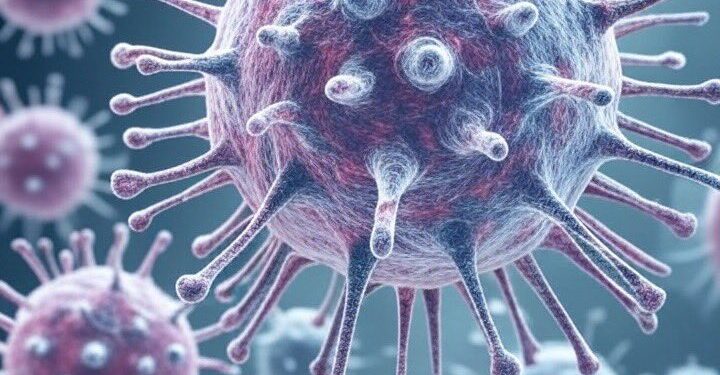Kerala, India, is on high alert after a 58-year-old man from Palakkad district died and tested positive for the Nipah virus, marking the state’s second confirmed case in recent weeks. Health Minister Veena George announced that contact tracing has begun, with 46 close contacts of the deceased identified. Authorities have placed hospitals in six districts—Palakkad, Malappuram, Kozhikode, Kannur, Wayanad, and Thrissur—on high alert to monitor for potential cases. Over 543 individuals are currently on the Nipah contact list, and fever surveillance and field monitoring are underway to curb the spread of the deadly virus.
The Nipah virus, a zoonotic disease that spreads from animals like fruit bats to humans, can cause severe symptoms, including high fever, encephalitis (brain inflammation), and respiratory distress. It can also spread through contaminated food or direct human-to-human contact, according to the World Health Organization (WHO). With a high mortality rate, the virus poses a significant public health threat, prompting swift action from Kerala’s health authorities.
Health Minister Veena George urged the public to avoid unnecessary hospital visits and wear masks in affected areas to reduce transmission risks. The state has intensified surveillance, with health teams conducting home visits and monitoring for symptoms like fever and neurological issues. Samples from the deceased have been sent to the National Institute of Virology in Pune for confirmation, as initial tests at Manjeri Medical College showed positive results for Nipah.
Kerala has faced multiple Nipah outbreaks in recent years, including a deadly 2018 outbreak that claimed 17 lives. The state’s health department is leveraging past experience to contain the current situation, with the National Joint Outbreak Response Team, led by Dr. Pranay Verma, assisting in Malappuram. Authorities are also using CCTV footage and mobile data to trace the patient’s movements and identify additional contacts.
While no vaccine is currently available for Nipah, supportive care remains the primary treatment, focusing on managing symptoms like fever and dehydration. The WHO recommends avoiding contact with fruit bats and pigs in affected areas to prevent infection. As Kerala strengthens its response, global health experts are closely monitoring the situation due to the virus’s potential for rapid spread.




































